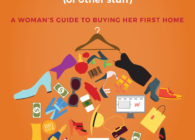No matter who we are or where we go in life, we encounter people who are struggling with personal issues and are not easy to engage with. They can prove challenging to deal for a variety of reasons. Often times, we feel ill-equipped to effectively deal with them. Some, feeling overwhelmed or unprepared, simply disengage and avoid any interaction at all. Others may become defensive or hostile toward them in an attempt to manage them or pressure them to change. Those who feel sympathetic, in an attempt to be supportive, can sometimes become enablers. Yet none of these fully resolves the situation.
Let’s take a moment and examine the differences between anger, boundaries, compassion, and enabling and which are productive choices and why:
Anger is a normal, healthy, useful emotion if understood and properly channeled. Anger, as are all emotions, is a messenger, a warning, that there is something in our lives that does not meet our standards. It could be a moral issue, personal or social one. Anger alerts us to the fact that something needs our attention in order to rectify it according to our beliefs and preferences. Once the message is received, there is no longer a need for anger. The entirety of our energy and efforts can be channeled into making positive changes.
Boundaries are the rules and guidelines we establish that create balance in our relationships and keep them healthy. Each party has a right to determine for themselves how they want to be treated, what they will not tolerate, and the consequences others will face should they disregard them. Boundaries can be interpreted as controlling, rigid, demanding or selfish. But in truth, if applied correctly, are an act of self-love as well as one of respect for the other party. All parties determine for themselves how they want to be treated and mature, caring adults will respect each side.
Compassion is the ability to feel another person’s pain and suffering. Similar to empathy, which also identifies and understands the person’s feelings and difficulties, compassion also encompasses a strong desire to alleviate their suffering. When we are able to put ourselves in the other person’s position and imagine how it would feel if we were experiencing it, we gain a deeper understanding of the seriousness of the incident from the other’s perspective and in that regard feel compelled to make matters better.
Enabling is characterized by making excuses for one’s poor behavior as well as engaging in ways that allow the other party to continue their self-destructive behaviors. Enablers sense the other person’s pain but are at a loss to alleviate it. They need to make themselves feel some sense of relief by not imposing further hardships on the individual and therefore don’t hold them accountable for their actions. Additionally, the troubled person is not challenged to find solutions on their own nor change their behaviors. The enabler takes full ownership for protecting that person, covering up the truth, and being fully responsible for their safety, care, and well-being. They believe that without their efforts the offender would not survive. This is certainly a grandiose way of thinking as they see themselves as saviors and martyrs and the only one capable of helping this person.
Having said that, people often have difficulty determining which approach to apply when dealing with someone who exhibits disturbing behaviors, particularly those struggling with an unforeseen hardship. Here are some common examples and how each of the ABCE apply.
Scenario 1:
Many parents find themselves with adult children who have moved back home after completing their schooling. Unable to find a job or perhaps unmotivated to do so, they become users, living off the generosity of their parents. The parents absorb all of their expenses while the child fails to pay rent or even help with household chores. “The job market is bad. Bob is searching for a really great job and doesn’t want to settle for just anything. He’s trying to figure out who he is.”
Clarification /Solution:
The parent may become angry with their child yet feel a continued sense of responsibility for their well-being. Others may feel guilty should they allow themselves to become irate. And still others may bypass anger altogether going directly to compassion instead. It is nearly impossible to seperate our child’s emotional pain from becoming ours. From this point, it’s easy to progress to making excuses: “The job market is weak – it’s not my child’s fault that he can’t find a good job as an art critic.” It’s easy to then proceed from compassion to enabling. But in doing so we prevent the child from being challenged to find his way in the world and determine for himself how he must survive on his own. Enabling cripples the child’s emotional growth and maturity, keeping them locked into the role of a dependent child.
However, by imposing limits, guidelines, and boundaries, the parent challenges the child to find their own solutions, thus forcing him to take full ownership of his life, tap into his creative genius, and push himself into maturity and independence.
Scenario 2:
You’ve been dating your boyfriend for nearly six months and realize that he is very controlling and oftentimes verbally unkind, maybe even abusive. You know his history of having grown up without his father. Being the oldest of four children and having a mother who worked two jobs to support them, he took on a lot of adult responsibilities at a very early age. He had to discipline his younger siblings, telling them what to do and not do. The pressure of raising them left him with little patience so it’s not uncommon for him to become irritated, fly off the handle, and say hurtful things.
Clarification /Solution:
Being mistreated by anyone should send up red flags and needs to trigger our anger, warning us that we are in some kind of danger. Our moral code of behavior is being violated and requires immediate attention. While it’s perfectly normal and admirable to feel compassion for any person forced to grow up under such unfortunate circumstances, one must take extreme caution not to become an enabler and make excuses for their pain and frustration. Who among us has not had to deal with hurt in our own past? Adults must take ownership and address these issues so as not to perpetrate them on others or continue to suffering themselves.
In this case, setting strong boundaries expressing how you expect to be treated and the consequences for ignoring them, is critical to the safety and well-being of the observer. Failure to do so could have deadly consequences.
Compassion is a healthy and vital attribute in all of our relationships. It shows our humanity towards one another, binds us together emotionally, and strengthens and fosters healthy caring relationships.
Enabling is fear-based (that the other party will not be ok without our intervention and protection) and satisfies our own need for grandeur and importance. Viewing oneself as a selfless savior and humanitarian is self-serving and egotistical. The dynamics of the relationship shows a predominant concern for the so-called savior’s own emotional peace of mind over the actual welfare of the other party. The offender remains emotionally crippled and dependent on their benefactor, thereby continually reinforcing the guardian’s illusion and unhealthy need of being their redeemer.
Boundaries are a healthy act of self-love (making certain one is treated with dignity and respect at all times) and respect for the other person as well, adhering to their preferences as to how they expect to be treated. While not always easy to create or enforce, boundaries are essential to the well-being and longevity of any relationship. Both parties learn to make the necessary sacrifices and accommodations to maintain the relationship (aka compromise), communicate more clearly and honestly, and ultimately value one another more as a result.
Anger, boundaries, and compassion all play a vital role in our long standing relationships. Enabling is a selfish, self-destructive behavior that ultimately wears down the enabler on an emotional, psychological, physical, and sometimes financial level. This is the only behavior of those we’ve discussed that is always destructive. So whether you’re dealing with an alcoholic, drug addict, a family member deep in debt, or a pleasant coworker who is undeniably incompetent, allow the anger (as a messenger only), set and enforce reasonable and fair boundaries, add an healthy dose of compassion, and eliminate enabling completely. And in doing so, you can have healthy, happy, respectful, and mutually satisfying relationships for a lifetime.
Love is caring more about the other person’s well-being than your own discomfort. Sometimes love means saying “no”.
Order The Secret Side of Anger, Second Edition or The Great Truth @ http://www.pfeifferpowerseminars.com/pps1-products.html
Listen to past shows on iHeart Radio @ http://ow.ly/OADTf
Listen to my newest iHeart Radio show, BETWEEN YOU AND GOD, @ http://ow.ly/OADJK
Follow me on Facebook, Twitter, Linkedin, Pinterest, Google+



